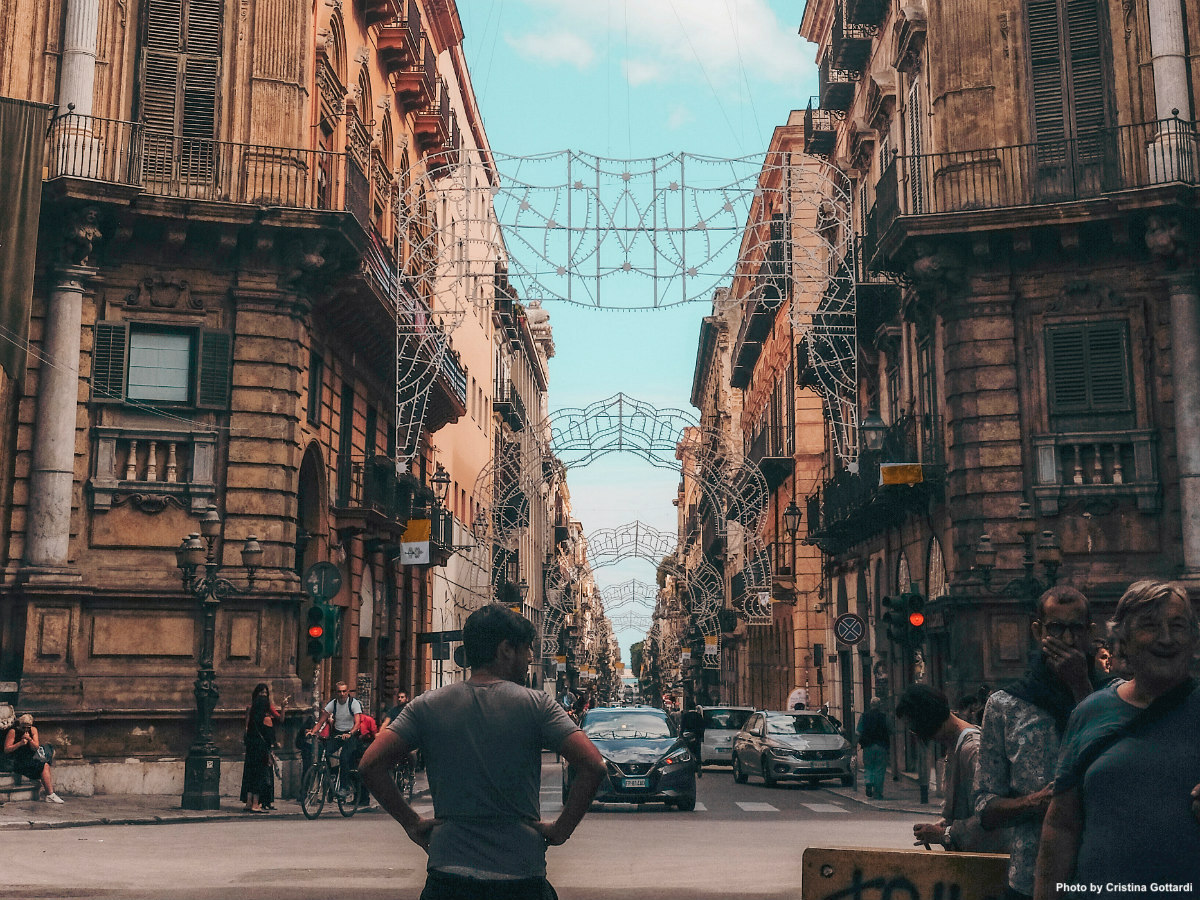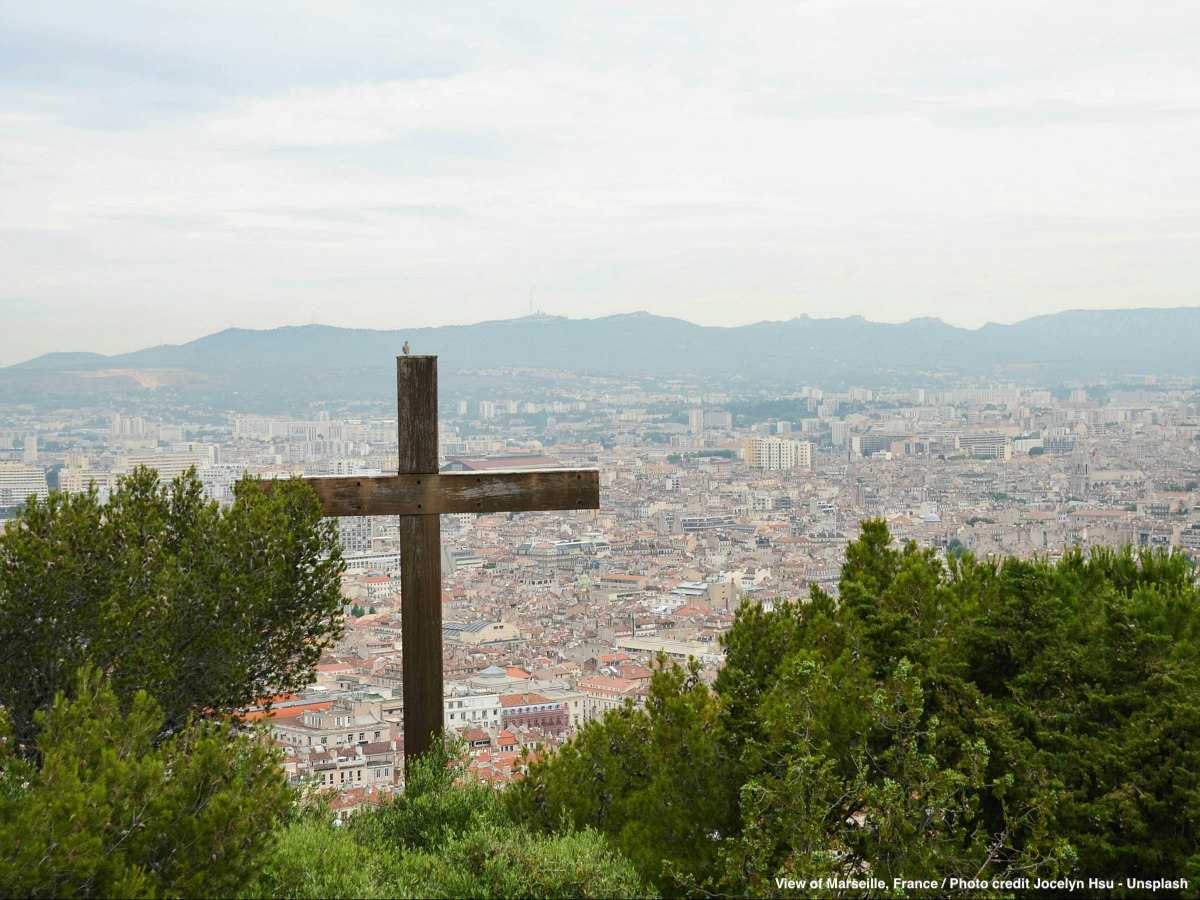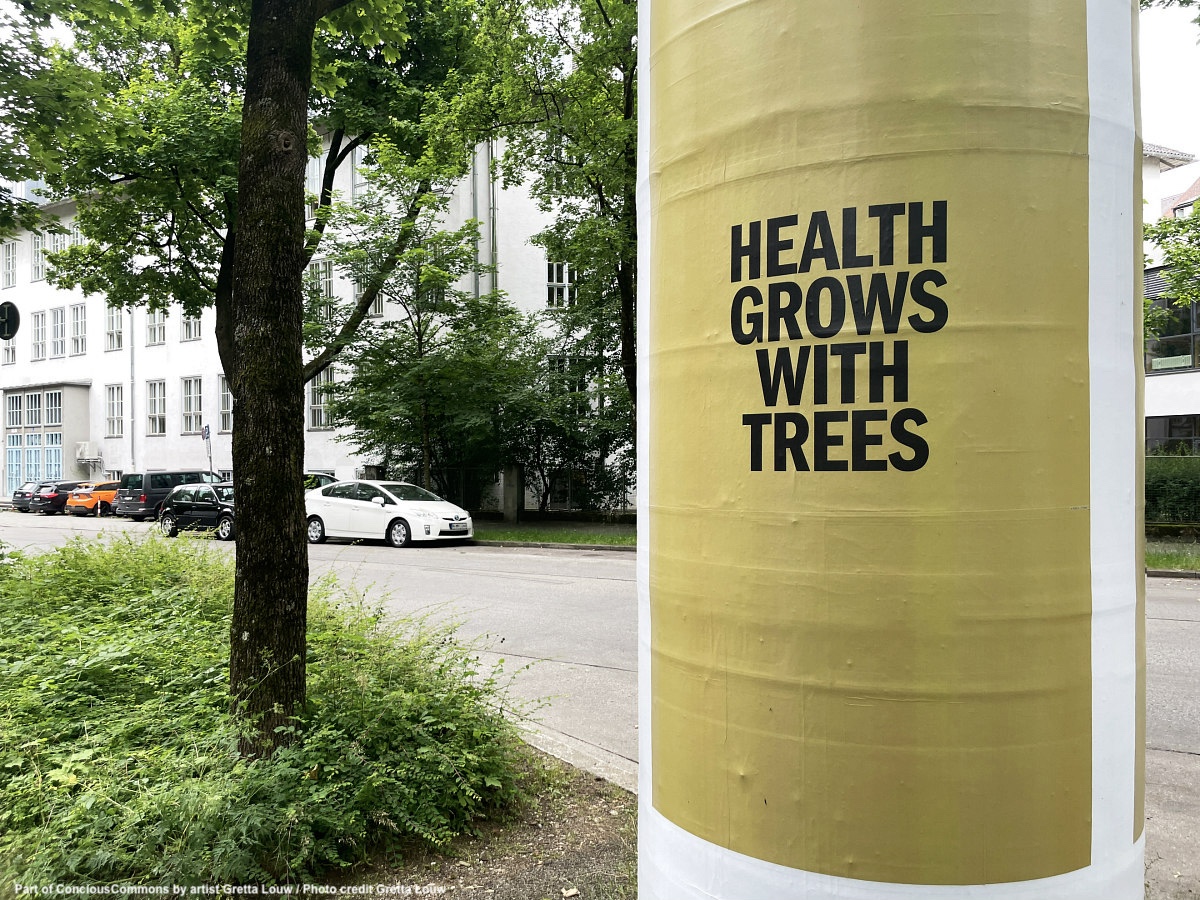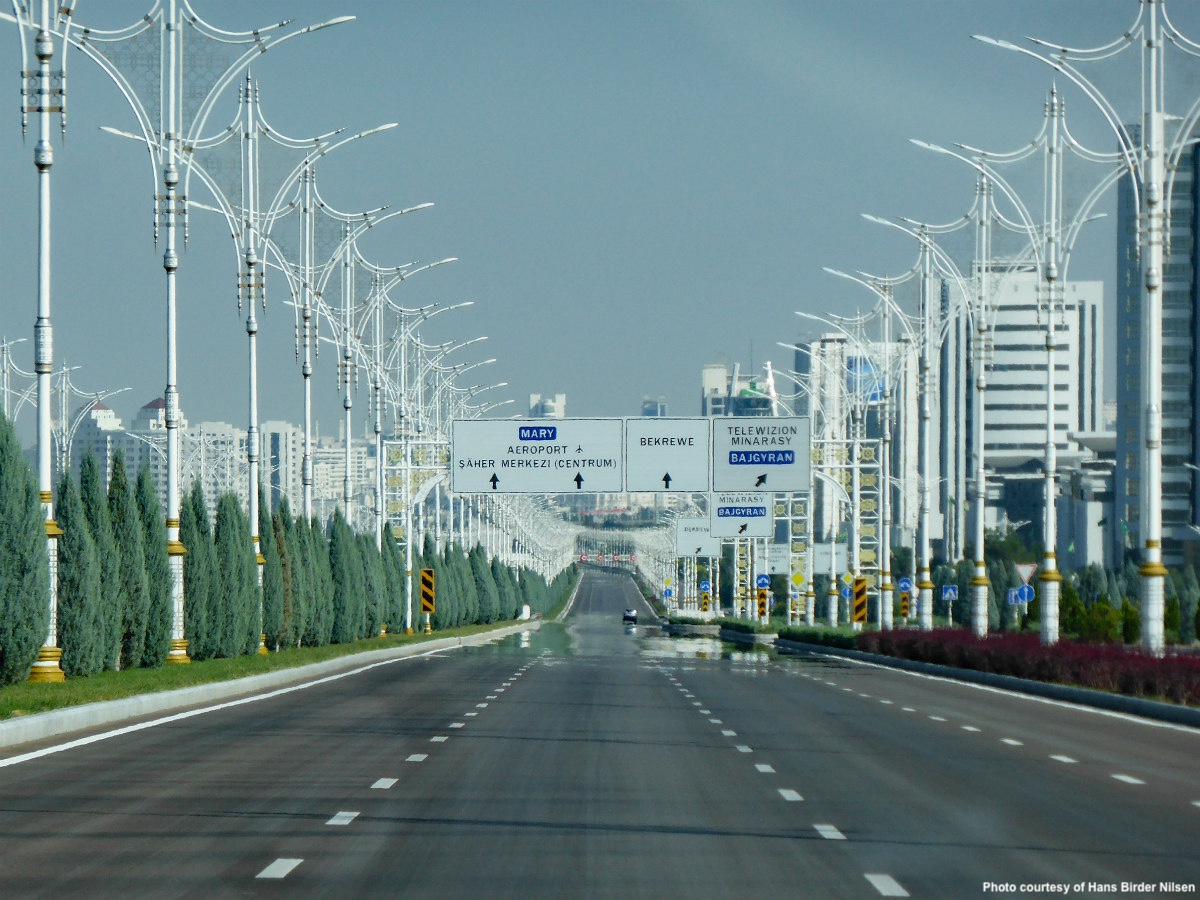A bold idea, jointly lead by mostly young people in Palermo, is disrupting the endemic and vicious circle caused by the Mafia’s stranglehold of the city. They are called Addiopizzo. No violence is involved; something much more powerful is gaining force: social cohesion. Backed by the willingness of conscious consumers Addiopizzo offers practical, psychological and legal support to shopkeepers and local businesses, who have decided not to pay extortion money (‘pizzo’) to the Mafia.
And it doesn’t end here. The funds raised by Addiopizzo through various actions and events in Palermo are destined to rebuild deprived communities, particularly kids and youngsters, a fertile recruitment ground for the Mafia. With this move Addiopizzo is investing the effort of conscious citizens and their collective power back into a prosperous city.
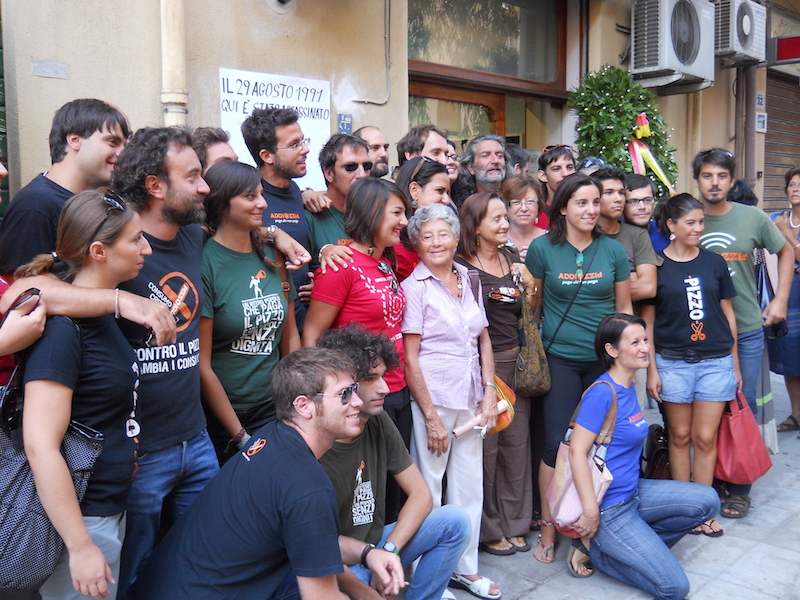
The story of Addiopizzo begins in 2004 when a group of friends found themselves planning their lives just after graduation. The idea was to open a pub in Palermo, but the fear that someone on behalf of the Mafia could ask for the ‘pizzo’ was high. This lead them to reflect on the fact that their city was resilient to the scourge of extortion. The Mafia’s grip is linked to increased poverty and a state of decay in some neighbourhoods of Palermo that feed badly, widespread illegality and organized crime.
They decided to change route and communicated their message of complaint to their fellow citizens. It was clear to them that only social cohesion could contribute to the prosperity of the city. One night Addiopizzo’s members went to the streets and plastered Palermo with stickers stating: ‘An entire populace who pays pizzo is a mob without dignity’.
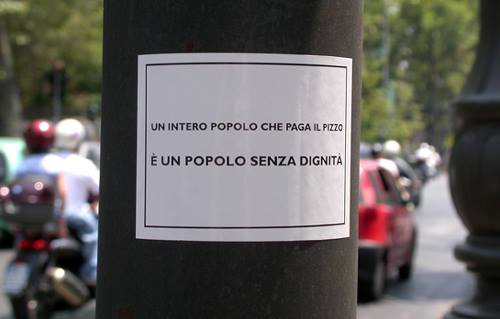
Initially, Addiopizzo was not targeting the shops but the consumers. Only a critical mass of conscious consumers could convince shops and businesses to stop paying the ‘pizzo’ to the Mafia. ‘It was very important to start building a collective conscience around the city’, says Marco Vuturo, one member of Addiopizzo.
The point of no return was when around 3.000 people (friends of Addiopizzo members and friends of friends) agreed to put their names in a local newspaper demanding shops and businesses to stop paying the ‘pizzo’. In fact, it was also a bold way of showing support for those shops and their owners who were known for not succumbing to the Mafia’s threats. They are often shunned by local neighbours and blamed for ‘disturbing the calm of the neighbourhood’.
‘You see, paying the ‘pizzo’ is more often a matter of economics rather than fear. Businesses decide to pay the pizzo just to assure a local clientele. It was important to disrupt this circle’ explains Marco.
‘The pizzo in Sicily became a sort of social custom; it was accepted. It was part of the DNA of the city ‘. Now there is a sort of social shame attached to this ‘custom’, the perception in the city has changed thanks to Addiopizzo.
From an anonymous action Addiopizzo has developed into a grassroots collective consciousness movement, which challenged the whole system in Palermo. It is more of a ‘cultural revolution’ in the city against the Mafia.
Addiopizzo’s network now includes over 1,000 businesses as members, each proudly displaying a logo reading: ‘I pay those who don’t pay’ in their windows and 13.000 consumers supporting the initiative.
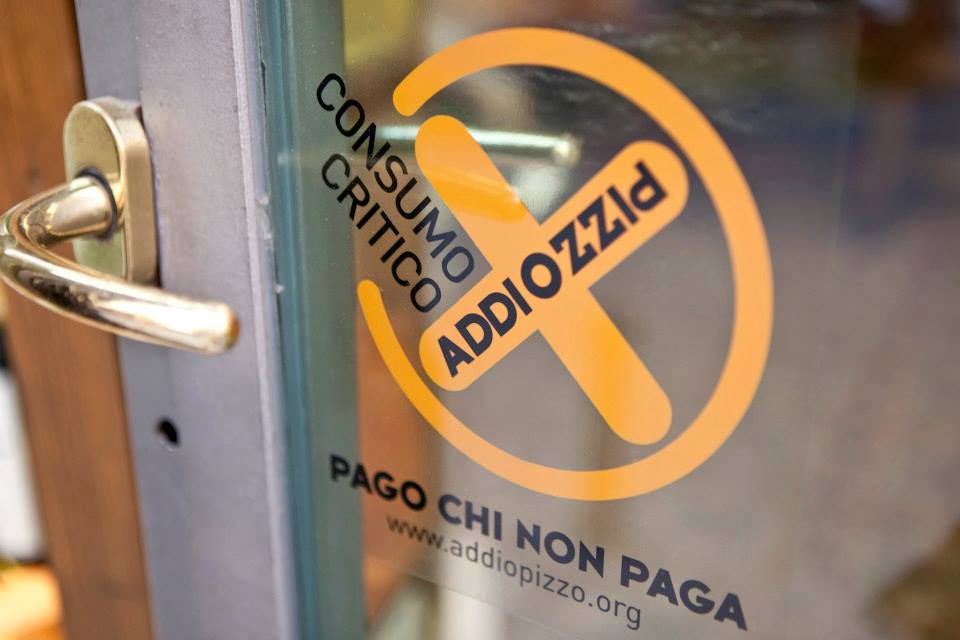
The members of Addiopizzo keep organising different actions and events in the city like a membership card to get discounts at shops of the network and advising tourists on 100% ‘pizzo’ free ethical holidays in Sicily.
With the funds they obtain they pursue projects in low-income neighbourhoods and help rebuilding deprived communities with high unemployment rates, previously a fertile recruitment ground for the Mafia. For example they have created a playground for children and have organized city tours with the kids to go outside their neighbourhood.
According to 100 Resilient cities pioneered by the Rockefeller Foundation, resilient cities can thrive, no matter the challenge, by using the capacity and social cohesion of its citizens. Palermo is filled with an incredible group of people whose collective power could change the city.
Cover photo by Cristina Gottardi. Rest of the pictures by Addiopizzo.
